The Best (Prose) Books of 2018
Peter Breedveld

Tanya Tagaq
The reason I never posted a list of favorite prose before is I never read enough novels and non-fiction actually published in the past year. So it’s difficult to come up with a list of ten books I really loved. However, I decided to not be so strict and include recent books I read this year, but which were published one or two or maybe three years before. So here is a list of ten books I have really strong feelings about, that I’ve read in the past twelve months.
10: Alan Moore: ‘Jerusalem‘

This motherfucker could have been a really good book if Moore had only allowed the assistance of a good editor. Jerusalem is a book full of good ideas, some mind-shattering ones too. But the 1300 pages of this whopper could easily have been brought back to a lean 500 if someone would have weeded out all the repetitive passages, the sheer unreadable pieces and the superfluously detailed, wordy descriptions of everything. It took me months to wrestle through this monster because I just can’t give up something I started.
And yet, this book has given me a lot. Among others the fear that I (and you, readers) will have to do this life over and over again, endless times, because the universe will end and be reborn, end and be reborn, with not a molecule changing its movement, doomed to go down the path it has taken a zillion quadrillion times before.
This is not really about Jerusalem, but about Moore’s hometwon Northampton. It’s full of myths and mysticism and fables and odes and social realism and surrealism and math and religion. It’s nuts, totally nuts and very, very wise too. But it’s way too thick. Big, cruel motherfucker of a book.
9: Anthony DeCurtis: ‘Lou Reed; A life’

This is far from a complete biography. DeCurtis describes Reeds life mainly from album to album and virtually nothing is explained. The reader is invited to draw his own conclusions based on what DeCurtis tells him. I personnally would have like to read more about Reed’s curious relationship with David Bowie but we don’t get a whole lot of information about what happens outside the recording studio or off stage.
I knew Lou Reed could be a jackass but I didn’t know he could be as petty as DeCurtis describes him. He resented other people for their talent, he could be a narrow-mindend racist, he would have a homeless man sleep in the street, in the dead of winter, because he didn’t want him inside the ATM he was using.
I can’t not love Reed, though. He made me laugh out loud throughout this book, mean bastard that he is. When a friend asks him to behave at the dinner table and respect his wife, the first remark he makes when he sees her is that her tits are too small. He was a Jew who had swastikas shaved on his head. He seemed to be keen on not meeting any expectations anyone would have of him.
Lou Reed, to be completely honest, reminds me somewhat of myself. Also he has made the most meaningful music out there.
8: Jean-Marc van Tol: ‘Musch‘
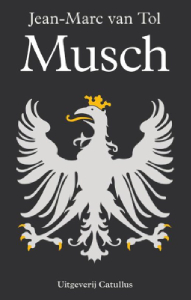
Historical novel by one of the most succesful cartoonists of The Netherlands, who surprised the Dutch literary world by suddenly publishing a thoroughly researched, 500 pages thick book about possibly the most corrupt statesman The Netherlands has ever known, Cornelis Musch, secretary general of the States General in the 17th century, during a period that was crucial to the formation of the Netherlands as an independant state. This is the first of a trilogy about the influential politician Johan de Witt who was famously lynched by royalist rioters together with his brother Cornelis
The book is inspired by the trilogy Hilary Mantel is writing about Thomas Cromwell. Van Tol is not nearly as brilliant a writer as Mantel is and to be fair, the court of Henry VIII is a far richer treasure trove of juicy events than The Hague was in 1650, but I had a great time reading this book and I have also learned a lot about the history of my own country. Read my review (in Dutch) here.
7: Remco Breuker: ‘De B.V. Noord-Korea‘
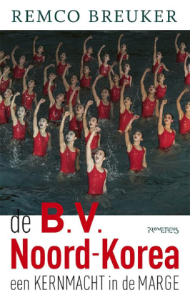
In the West you will not easily find someone as knowledgable about North-Korea as professor Remco Breuker, who has never been in North-Korea because he refuses to. But he reads and speaks Korean fluently, speaks with North-Korean dissidents and reads North-Korean sources, contrary to most Western commentators on North-Korea, who are totally dependant on North-Korean propaganda and sources in English.
Breuker’s description of North-Korea is as fascinating as it is blood-churning. North-Korea is a man-eating machine of destruction to feed a voracious elite of very corrupt, very capitalist evil-doers.
The book reads like a political thriller full of sometimes incredible plot-twists. James Bond meets John Le Carré, something like that. Breath-taking. Read my Dutch review here.
6: Fréderike Geerdink: ‘Dit Vuur Dooft Nooit‘
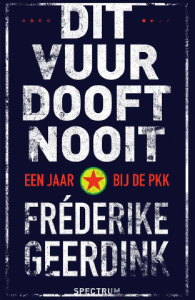
Fréderike Geerdink is a journalist who spent some time in a Turkish jail and then was thrown out of Turkey for writing things that didn’t please Erdogan. She spent a year living with the PKK, the Kurdish resistance movement and describes their way of life, their history and ideas. Geerdink sympathises with the PKK, but describes the movement as objectively as she can, being at times very critical about the PKK’s methods and actions.
This book is chock-full of information, more than I would think 300 pages can actually contain. It didn’t immediately make me a PKK-enthousiast, but I feel I understand the PKK a little better now.
Read my interview with Geerdink (in Dutch) here.
5: Nathan Englander: ‘Dinner at the Center of the Earth‘

Nathan Englander is one of my favorite writers. His crisp style reminds me of Paul Auster’s and he somehow pairs a certain wry detachment to a humane compassion. This is not to say he is not cruel to his characters. Englander is just not taking pleasure in their suffering. He records, like a journalist.
This book, a political thriller with existentialist traits, told from many different perspectives, reminds me very much of Le Carré’s The Little Drummer Girl.
4: Paul Auster: ‘4321‘

Almost 900 pages, finished it in three days. This is a wonderful book about the four paths a man’s life could have taken if some little event hadn’t happened, if a meeting had not taken place, fate hadn’t interfered, things had gone just a little differently.
Auster tells the four lives of this man, Ferguson, in chapters with numbers corresponding to the different parallel Fergusons. So we hop from Ferguson to Ferguson and back again, traveling at the same time through modern American history. This way we not only witness the lives chronicled, but also American culture, the civil rights movement and the interactions of all these events with the lives of the Fergusons and the people around him.
Paul Auster is the greatest living writer now.
3: Arundhati Roy: ‘The Ministry of Utmost Happiness‘

Very impressive novel in which modern Indian history is viewed through a deeply compassionate eye. The book has villains and heroes and agressors and victims but it’s all complicated. Everybody is compelled by the place he or she occupies within the storm of events constantly sweeping over India.
In the center of it all is a trans woman, Anjum, who turns into a kind of saint of all the beggars, whores and outcasts in Delhi. A fascinating figure who somehow serves as a human oasis in the midst of all the turmoil and violence and misery. I started missing Anjum the minute I finished the book, a source of consolation and homeliness, but a very real person that Arundhati Roy created.
2: Zadie Smith: ‘Swing Time‘
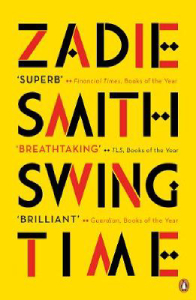
Wow, this book is just what the doctor ordered in these times of irredeemable condemnations and harsh dogmas. It is about people who have imprisoned themselves within their principles, people who have all the answers but who are not able to help the ones in their immediate surroundings, people meaning well but doing evil, misguided people doing good, smart people doing stupid things, dumb people being smart. Everybody tries, everybody is blind.
This is my first Zadie Smith novel. I am ging to read them all.
1: Tanya Tagaq: ‘Split Tooth‘
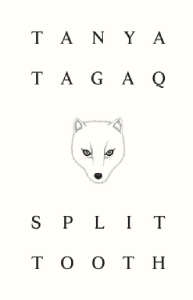
But this, this is the revelation of the year. A novel that transcends all the others on this list. A genre-bending book that is hard and soft at the same time, very violent, very erotic, very realistic and also very surrealistic.
Tagaq travels between dimensions, confronts us with the horrors of sexual violence in a way I have never ever seen anyone doing. Most shocking in this book is the ambiguity of everything. Of experiencing sexual violence, of reality and fantasy of what is false and what seems true.
Her language is clear like crystal, but her stories tend to get feverish and nightmarish, especially towards the end of the book, in which a story about growing up poor turns into a very scary horror story.
This one nestles itself in your psyche and leaves you a different person than you were before picking this up.
Tanya Tagaq is a very gifted musician by the way. Her music is exactly as haunting as this book.
boeken, Lists, Peter Breedveld, 27.12.2018 @ 19:31


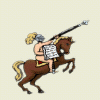
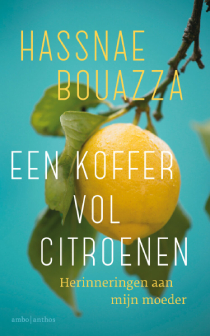
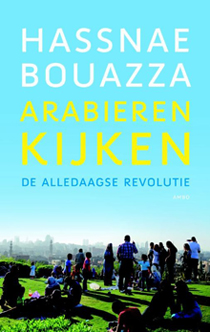
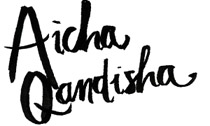

 RSS
RSS